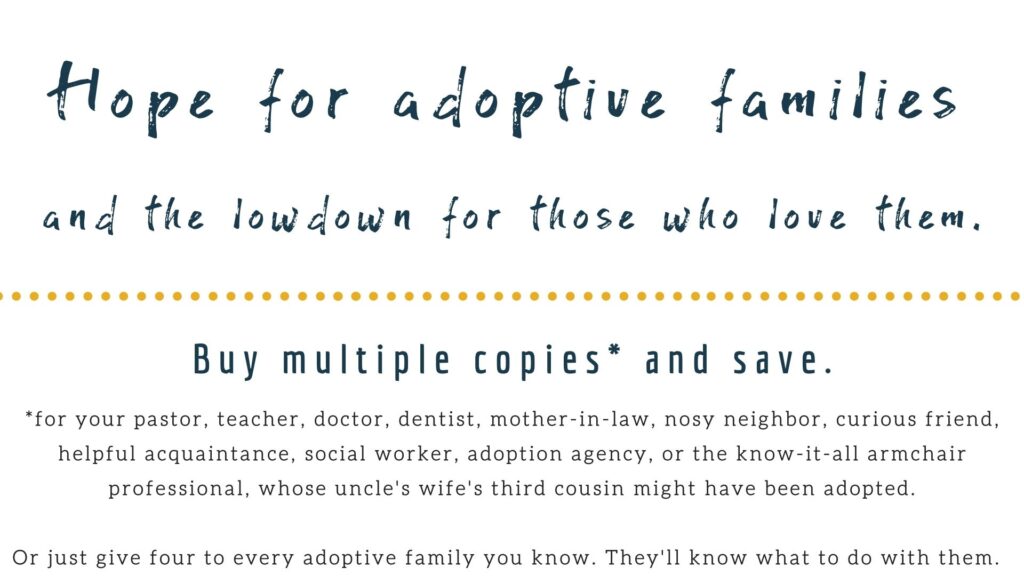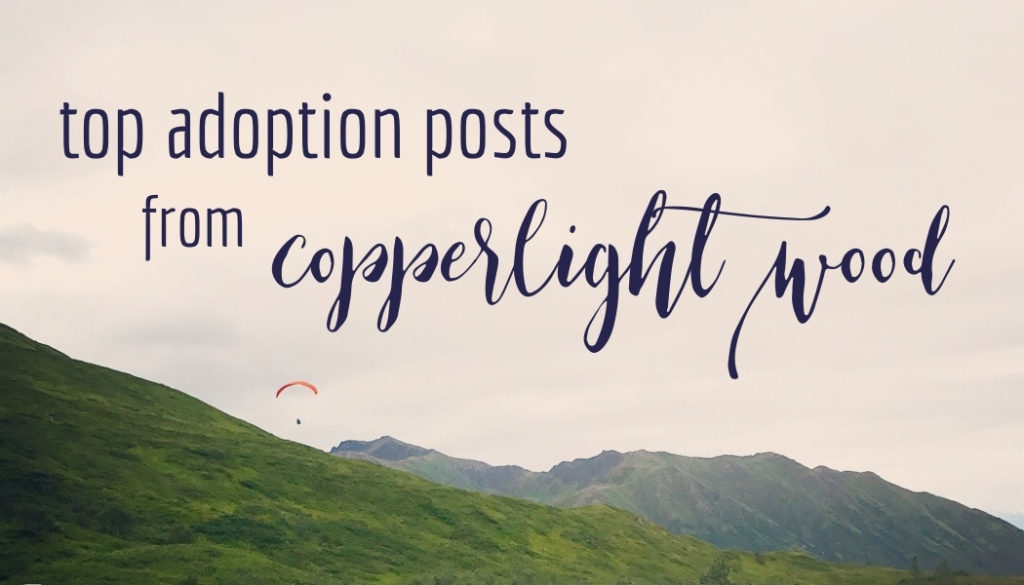
Adoptive and foster families working through attachment issues often feel alone. But it doesn’t have to be that way – communities around them can intentionally be part of the solution instead of unintentionally being part of the problem. Without that support, adoptive and foster families live in isolation.
Shannon Guerra learned this first-hand after she and her husband adopted two children in 2012, and she started writing shockingly transparent blog posts about what her family was going through at home, at the doctor’s office, and in her heart as a mama.
And then adoptive and foster families started writing back.
Their overwhelming, unanimous theme was, “This is what I’ve wanted to tell people for so long. I wish everyone who knows our family could read this.”
This book is the result. It is now used in churches, offices, ministries, and communities as the must-have, easy-read resource for training and explaining attachment issues to those who need to know as soon as possible how to support adoptive and foster families.
In about 100 pages, Upside Down provides information and insight that transforms an outsider’s assumptions into an insider’s powerful perspective. Because adoptive and foster families should never feel alone, and our communities can be equipped to make sure they never feel that way again.
What readers are saying:
“This book is, hands down, the best resource I’ve found on supporting families who love a child from a hard place…I wish this resource had been available when we first began our adoption journey.”
“This book is a must read for anyone who knows an adoptive family and wants to know how to help. And it’s a must read for the adoptive family…it’s comforting to know we aren’t alone in this attachment struggle.”
Want a preview? Chapter 2: The Why Behind the Weird Limits is here, free. Also, the first three sections of Upside Down in audio are free.
*Want the cheat sheet, too? Download it here. It’s free, printable, and instant.
“Upside Down is a terrific help to these families and those of us that want to wrap around and be there and be present for those families.…This will be a great resource for you to get for them and for you to read, too, and be that friend. What does it mean to be a friend of an adoptive family? Shannon’s book Upside Down covers that.”
– Jim Daly, President of Focus on the Family
What the reviews are saying:
Upside Down is a great resource for adoptive parents and the ones who love them, wisely and compassionately shining a light on the deep challenges involved in parenting children with wounded hearts. If you are such a parent, this book will help you feel supported and understood. If you know and love such a family, you will come away from this book with a whole new level of understanding, and be better able to support your loved ones.
—Mary Ostyn, author of Forever Mom: What to Expect When You’re Adopting
Shannon writes with raw, real, and hopeful narrative. We would recommend this book to any adoptive family facing attachment issues with their child, and to those who desire to understand and support them.
—Mike and Kristin Berry, founders of Confessions of an Adoptive Parent
Upside Down, Understanding and Supporting Attachment in Adoptive Families by Shannon Guerra is an amazing resource of help to those who have friends and family who have adopted. The approach is both funny and sobering at the same time. It gives a glimpse into the trials parents of adopted children face, gives suggestions on boundaries, and shares real stories and insights from parents in the adoptive trenches. It is a must read for every friend and family member of adoptive families. You will learn a lot…and learn you have much to learn. I had no idea of the effects of RAD (Reactive Attachment Disorder). I am humbled to read this book. I will recommend this book. I will reread this book many times. Read it for yourself and begin the journey of understanding and the support that is deeply needed.
—Ed Waken, pastor of ValleyLife Church
Upside Down shares stories and perspective from dozens of adoptive, foster, and biological families healing through the spectrum of attachment issues, from general attachment concerns to Reactive Attachment Disorder. It explains how communities can provide support without causing further damage to a hurting child and more isolation to the families working so hard to heal them. Topics include:
- the reality behind the rose-tinted movies
- the why behind the weird limits
- the tangle of community
- what adoptive families really wish for…besides coffee
- sample letters for care providers
- links and further resources
The message of Upside Down is two-fold:
Adoptive families are not alone, and the communities around them can be equipped to make sure they never feel that way again.
Need more encouragement? Don’t miss these resources — and you might also want to subscribe to get new posts, straight to your inbox.
